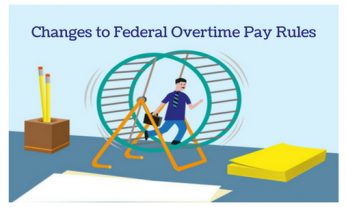 The last thing you need as an employer is an employee lawsuit. Running a business is not easy. It requires an assortment of skills that include business savvy, financial prowess, organizational mastery, and schmoozing finesse to deal with customers, competitors, and employees. In the event that you wind up battling an employee lawsuit, consulting with an experienced employment attorney is your best bet.
The last thing you need as an employer is an employee lawsuit. Running a business is not easy. It requires an assortment of skills that include business savvy, financial prowess, organizational mastery, and schmoozing finesse to deal with customers, competitors, and employees. In the event that you wind up battling an employee lawsuit, consulting with an experienced employment attorney is your best bet.
Employee Lawsuit – Why do Employees Sue?
There are all kinds of reasons for an employee lawsuit. Employees will definitely take to the courts to deal with their grievances. Here are some of the employee lawsuit biggies with suggestions on how to avoid these issues:
- Employees feel they have been mistreated: When human dignity is secondary to the company’s bottom line, workers feel it. Whether they are still employed, demoted, or no longer with the company, if people believe they are or were disposable, it hurts. This is likely the number one reason individuals seek retribution against an employer – because they believe their efforts on behalf of the company went unrecognized and underappreciated.
- To avoid this pitfall: Treat employees respectfully. Make sure managers get the message that people matter, and build recognition into the culture of the workplace.
- Employees are disciplined, demoted or fired for engaging in a protected activity: Oftentimes employers may feel uncomfortable with, say, union participation. Or perhaps an employee has reported discriminatory behavior in the workplace. If negative consequences follow this kind of protected activity, it is unlawful, and could result in a lawsuit.
- To avoid this pitfall: Make sure HR documents issues with employees so there is a clear paper trail leading up to job actions. Additionally, stay up to date on the laws regarding employee rights, and make timely responses to employee concerns regarding discrimination.
- Employees working under the direction of a bad manager: When a manager lacks the leadership skills and the ability to represent the values of the company adequately, no matter how wonderful the mission statement is, it could be trouble. One harasser, one cheater, one cruel manager, and the company is at risk.
- To avoid this pitfall: Train managers well, and perform regular evaluations to ensure they are working within the law and treating employees properly.
- Employees see unfair application of rules: Employee A is written up for excessive tardiness, but Employee B gets away with it on a regular basis. It irks everyone to see that type of thing, especially if it looks like the uneven enforcement is related to race, gender, or other protected status. When employees can prove unequal treatment occurred, it can be expensive for employers.
- To avoid this pitfall: Have clear rules and expectations, and specific policies in place to intervene when there is a problem.

